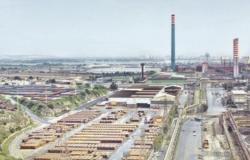Production slows down, employment does not. The first quarter of 2024 for Lombard manufacturing offers contrasting data with each other and with the tradition of economic history. Even in the face of positive cycles, data on worker hiring — at times — appeared at least slower and more timid. But, apparently, vaccinated by pandemics, wars, energy shocks and surges in raw materials, the productive fabric of Lombardy has reached a level of “maturity” which leads to strategic choices even during lean times.
This, at least, is the reading proposed by the representatives of the economic categories and regional politics in light of the data released yesterday by Unioncamere, which recorded a setback in industrial production (-0.3%) and artisan production (-0.6%) in the first three months of the year, with a consequent decline also in turnover, -0.9% and -1.3% respectively. The international scenario, fears of a new increase in energy costs and the weakness of domestic demand are weighing on the situation. There are also growing sectors: means of transport (+4.4%), chemicals (+3.6%), food (+3.5%) and paper and printing (+1.6%). But all the others are suffering, such as the fashion sector (textiles -7.8%; clothing -5.9%; leather-footwear -3.2%), the steel industry (-4.6%), mechanics (-2 .4%), rubber-plastic (-1.5%). Wood-furniture stable (+0.1%).
But despite this scenario, businesses’ expectations are positive, to the point that not only is employment holding up but even showing a balance with a “plus” sign in front: +0.5% for industry and even +0.7% in craftsmanship. Why? One explanation is undoubtedly linked to the new labor market scenarios, since the availability of labor is more complicated than in the past. But according to Fedele De Novellis, editor of the Unioncamere report, «not only do companies keep their workers, but they hire new ones as part of a strengthening strategy, entrepreneurs have good perceptions for the next quarters and therefore invest in human capital.” And on this point, the regional councilor for economic development, Guido Guidesi, adds: «Ours is a solid, very mature ecosystem, and thanks to its flexibility it manages to give positive signals in negative contingencies like the ones we are experiencing». In fact, Gian Domenico Auricchio, president of Unioncamere Lombardia, also returns to the “worrying geopolitical conditions”. «We are confident in the reduction of rates and the lowering of prices – he underlines – the foreign markets for the Lombardy industry remain relevant and in consideration of the albeit slow recovery of world trade we are confident that the numbers can improve».
The president of Confindustria Lombardia, Francesco Buzzella, emphasizes the cautious optimism of entrepreneurs, despite the complexity and delicacy of the geopolitical scenario, and in turn recalls the “strong investments in training” by companies, which therefore “do not let the own employees”, even if the moment is not the best. And he refers expectations to the choices of the Europe to come, from which he expects “strong, far-sighted and shared choices”. Especially in terms of energy, because “there are companies that consume a lot of it but they are the basis of entire production chains”. And on behalf of the artisan world, Stefano Fugazza underlines the difficulties of accessing credit, with rates reaching 7%, and relaunches the message for young people: «There are professions to discover, it’s not just working at a desk with a computer». But to shore up a job market that is also suffering from the effects of demographic decline, immigration is also needed, and therefore “some intervention on the quotas of the flow decree”.
A different trend, however, as regards the Milan area. According to the economic analysis of the Milan Monza Brianza Lodi Chamber of Commerce, the first quarter of 2024 saw production grow by 2.1%, compared to the same period in 2023, with a decline in turnover (-1.6%). The numbers of the capital, then, are worse than the regional ones with regards to the order book (-2.2% drop in one year) and foreign markets (-1.5%), however better than domestic demand (-2 ,6%). In short, a picture of substantial stability.





